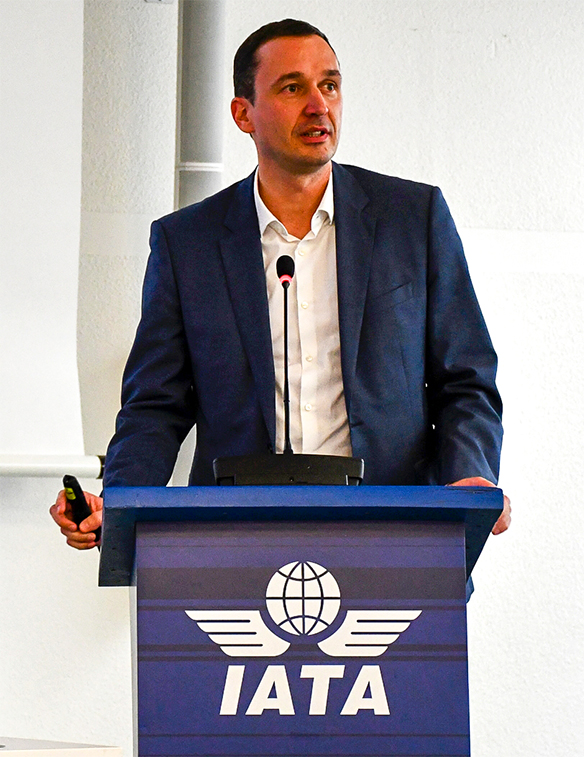
Say Good-Bye to PNRs, Say Hello to ONE Order

MIKE DUNBAR
(Photo above: Eric Leopold)
Air travel retailers and their clients can say goodbye to passenger name records (PNRs), e-tickets and electronic miscellaneous document (EMDs) – but not just yet. They’ll have to wait until IATA’s groundbreaking ONE Order initiative is up and running across the global airline industry.
But that’s definitely going to happen, according to Eric Leopold, IATA’s director of transformation, financial and distribution services, who told journalists attending the association’s recent AGM In Seoul, “One Order is an industry-led initiative aiming to simplify airline reservation, delivery and accounting systems by gradually phasing out the current booking and ticketing records.”
He explained, “One Order combines those multiple records into a single customer-focused order. It leverages the data communication advances made possible by the implementation of the New Distribution Capability (NDC) and removes inefficiencies inherited from paper-based industry processes that were never updated when the industry transitioned to e-tickets.”
And he pointed out, “A new, standardized and expandable reference will become the single access point for customer orders by third parties such as distribution channels, interline partners, ground handling agents and airport staff, among others.
Easily recognized
“Travellers will no longer need to juggle between different reference numbers and documents when checking-in or making itinerary changes. With a single reference number, they will be easily recognized by all service providers.”
According to Leopold, One Order will modernize the airline ecosystem to align digital processes for fulfilment, servicing, delivery and accounting with orders.
“Thanks to these, One Order will facilitate product delivery and settlement between airlines and their partners with simplified and standardized order management processes, and it will enable network airlines and ticketless carriers to interact and provide combined services to customers,” he told reporters.
The Geneva-based exec stated, “The move to One Order is a large-scale transformation project – even bigger than NDC – encompassing airlines’ internal processes and procedures, as well as their organizational structures.”
And he added, “It also impacts interactions between airlines and other industry partners, including passenger service system suppliers, airline e-commerce platforms, travel agents, global distribution systems, and others. As such, it appears likely that there will be a transition period during which airlines will need to operate with both existing legacy processes, as well as the new standards.”
Key enablers
Lufthansa has this year been piloting One Order concepts and schemas in the areas of delivery and accounting. The main objective has been to establish a seamless end-to-end One Order-based processing and fulfilment of NDC offers.
And a 2017 British Airways and Amadeus pilot reviewed the incorporation aspects of One Order into the revenue accounting system with the aim of demonstrating the coexistence of orders and e-tickets – one of the key enablers of the transition to One Order.
Leopold wound up his presentation by pointing out, “The One Order transition study is a key activity for 2019. The aim is to support airlines and other players in their businesses and IT transformation to adopt One Order by providing guidelines on different approaches and creating transition roadmaps to get to the possible end state.”
The study will also help all parties understand the timeline of implementation, he figured.
